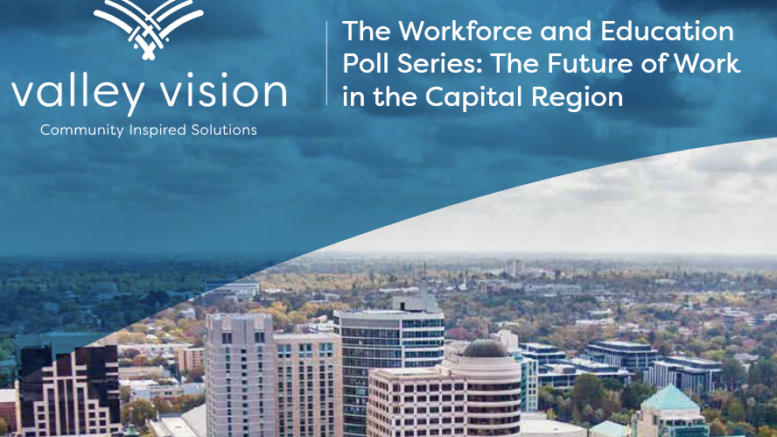Study shows Sacramento workforce before coronavirus—and challenges ahead
What were people doing for work in the Sacramento region before the coronavirus pandemic changed everything?
While not the original goal, a new report by Valley Vision provides a valuable pre-COVID-19 snapshot for local leaders.
For instance, one-third of the local workforce was already working in the “gig economy,” though many of these freelance jobs don’t come with the same benefits or protections as full-time employment.
One-fourth of those surveyed said gig work is their primary source of income. Nearly 60% of 18- to 39-year-olds are doing some gig work, as are 67% of African Americans and 57% of Hispanics. About 11% of all respondents—and 24% of 18- to 39-year-olds—said they drove for Uber, Lyft or another car service.
Those percentages could rise with all the layoffs caused by the coronavirus shutdowns—if restaurants and other small businesses close permanently, or if businesses decide that they can reopen without rehiring some laid-off workers.
Also, as technology and artificial intelligence advance, experts warn that more and more jobs will be done by machines, not people. And you could easily imagine that becoming more common as well.
But Sacramento region residents weren’t that concerned, at least according to the report: 82% of respondents said they were excited or confident about the impact of technology innovation on their job prospects, while only 19% said they were worried or nervous.
The new economy in general “relies on individuals who can market themselves and advance their own business interests,” the report says. And 62% of those surveyed said they believe they have entrepreneurial skills and 50% say they’d risk starting their own business. Now, however, it’s a good bet that people are less confident in their career prospects.
Even before COVID-19, the study found that 55% were open to moving elsewhere for better opportunities, and 16% were already looking to leave.
So if local business and political leaders don’t figure out quickly how to rebuild the economy, there is a possibility of losing large numbers of workers to other metro areas that create good jobs.

Evan Schmidt, senior director at Valley Vision, said the nonprofit is looking at its research in a different light with the coronavirus crisis.
While policymakers are focusing on immediate public health, food and education needs, the conversation soon will turn to how to build a resilient economy, she said. And Valley Vision hopes that officials can use the report to address the changes that are being accelerated by the coronavirus shutdown.
In coming weeks, Valley Vision plans to release a detailed report on the education and skills that workers need in today’s economy and a second on job displacement and automation. The nonprofit also plans to do an opinion survey on people’s experiences during the pandemic.
The future of work report is based on a survey of 826 residents in El Dorado, Placer, Sacramento, Sutter, Yolo and Yuba counties that was conducted in June 2019 by the Institute of Social Research at Sacramento State University. The survey is the fifth in a series started in 2017 by Valley Vision, a nonprofit funded by local governments, foundations and businesses. The previous ones looked into civic amenities, transportation, quality of life and the environment.
Because of its timing, this latest study could be the most important yet. It asked: “Will we in the Capital region be able to leverage new opportunities to create success or will we be marginalized by the changing economic landscape?”
The pandemic makes that question even more consequential.






Be the first to comment on "Editor’s note: The future of work"